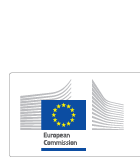
Blog post #5 (June 2025)
From Monsoons to the Mediterranean: One Researcher’s Water Story
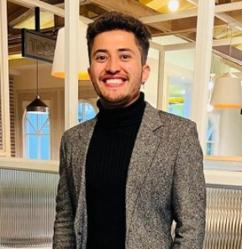
Shahid Ali is an Environmentalist and Doctoral Candidate in the C-NEWTRAL program at the University of Girona (UdG). With a Master’s degree in Environmental Science and Engineering, his academic background focuses on hydroclimatology, water resources, and sustainable development. Shahid’s current research explores how Decision-Support Frameworks (DSFs) can help cities tackle urban water scarcity by integrating Nature-based Solutions (NbS). Passionate about bridging science, NbS options, policy, and sustainability, Shahid aims to contribute to climate-resilient urban water management through data-driven and systems-oriented approaches.
Water is the lifeblood of our planet, shaping landscapes, supporting ecosystems, and fueling civilizations. In the context of climate change, managing this precious resource has become an increasingly complex global challenge, with impacts ranging from devastating floods to crippling droughts (due to climate change, population growth and unsustainable use). My own journey in the field of water science reflects the global nature of this challenge. It began on the banks of Indus River system in Gilgit, Pakistan, took me on a technological odyssey in South Korea and now brings me to the historic city of Girona in Spain. As a Marie Skłodowska-Curie PhD fellow with the C-NEWTRAL network at the University of Girona, I frequently find myself drawing upon the diverse perspectives I have gained from these experiences as I consider how to tackle the pressing issue of urban water scarcity.
My understanding of the fundamentals of water management started with my bachelor's in environmental engineering at National University of Sciences and Technology (NUST) in Islamabad Pakistan. Our connection with water in Pakistan is profound. The majority of country’s 247 million people is heavily dependent on the Indus River basin (primarily), which experiences significant fluctuations from Himalayan glacier melt and intense monsoon seasons interspersed with prolonged dry periods, a situation that highlights the critical need for effective water governance. My academic journey and practical experiences, including a final year project working on rotating biological contactors for the treatment of domestic wastewater and an internship at the Pakistan Ministry of Climate Change where I assisted with WASH (Water, Sanitation, and Hygiene) initiatives, helped me understand the intimate connection between the engineering principles and socio-environmental challenges associated with water management in a resource-constrained area.
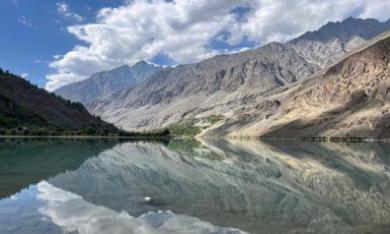
Khalti Lake Ghizer (a tributary of the Indus), my hometown and the place where my journey with water, mountains, and meaning first began. Located in Ghizer Valley of Gilgit-Baltistan, it is fed by glacial melt from the surrounding mountains. Its waters flow into the Ghizer River, which joins the Gilgit River and eventually becomes part of the mighty Indus River system, one of the world’s largest basins, providing water, food, and energy to millions across Pakistan.
Next, moved by curiosity and desire to deepen my knowledge about different approaches to water management, I pursued a Master's degree at the Pohang University of Science and Technology (POSTECH) in South Korea, an opportunity provided through the (opens in a new window)Global Korea Scholarship (GKS). This marked an exciting shift for me, into a hyper-modern, technologically advanced setting with unique environmental priorities, so different from the ones I knew at home. My research within the (opens in a new window)Hydroclimatology Lab focused on the application of computational methods in developing climate resilience. I set about analyzing decades of data to comprehend historical variations in streamflow timing across major rivers in Pakistan, and model future scenarios utilizing bias-corrected regional climate projections, essential work for planning climate change adaptation measures. Additionally, I was involved in research that employed innovative technologies such as uncrewed surface vehicles (DUO boats) for high-resolution water quality and quantity mapping in reservoirs. Immersing myself in the Korean culture and language while working with cutting-edge research techniques, significantly altered my perspective on research, emphasizing the significance of hydroinformatics and big data analysis in producing actionable insights for environmental challenges.
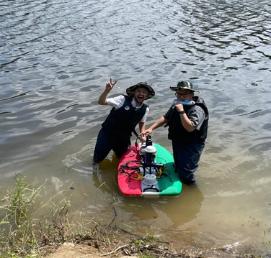
Fieldwork days in Pohang, South Korea - using a DUO boat to sample water quality, literally immersing myself in hydro-environmental science.
My journey now continues in Girona, Spain, made possible by the prestigious Marie Skłodowska-Curie Doctoral Fellowship. Here, within the framework of the C-NEWTRAL Doctoral Network - an excellent initiative promoting research collaboration across Europe to achieve climate/water neutrality in urban and industrial contexts. My primary focus is on decision support system for urban water scarcity, utilizing Nature-based Solutions (NbS). Like many Mediterranean cities, Girona is experiencing increasing pressure on its water resources due to the combined effects of climate change and continuing urban expansion.
The core of my PhD project involves the development of an advanced Decision-Support Framework (DSF) – an intelligent advisory framework that synthesizes various data streams (climate, hydrological, urban, water usage and availability) to assist city managers in making well-informed decisions regarding selection of water management NbS options, site identification, conservation strategies, and infrastructure investments. One of the most exciting aspects of this DSF is the integration of (opens in a new window)Nature-based Solutions (NbS). Rather than relying exclusively on traditional 'grey' infrastructure such as pipes and concrete channels, NbS leverage natural processes. Could Girona’s resilience to drought and heavy rainfall be significantly improved by implementing more green roofs, constructing rain gardens, restoring small urban streams, and increasing permeable surfaces? My work seeks to answer such questions by using hydroinformatics modelling and multi-criteria assessments to evaluate the performance of different NbS options and how they can be optimally integrated into the city's water management strategy alongside existing systems. The collaboration with academic and industry partners within the C-NEWTRAL network can help to ensure that the solutions I propose are not only theoretically or technically sound but also applicable in real-world urban contexts.
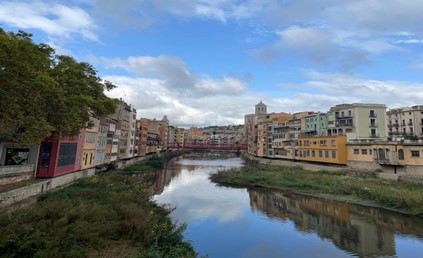
Arriving in Girona, a Mediterranean city where I am continuing my water trip with an emphasis on nature-based solutions.
Looking back on my journey to date, I can clearly see how each phase has built upon the previous one, or to put it otherwise, how my past orients my future horizons: the foundational engineering principles acquired in Pakistan, the advanced data analysis and Hydroclimatology expertise developed in South Korea, and the emphasis on sustainable development and stakeholder engagement all converge in my current research in Spain. At a certain level, understanding the large-scale river dynamics of the Indus basin aids in conceptualizing the catchment scale pertinent to Girona, and why not, vice-versa!
The international mobility and global perspective fostered by programs such as GKS and Marie Skłodowska-Curie Actions is paramount. It facilitates the exchange of ideas, the dissemination of best practices, and the cultivation of researchers capable of thinking at a global scale. Addressing complex global challenges such as water scarcity necessitates precisely this type of collaborative and interdisciplinary perspective. My experiences across these diverse environments and geographies strengthen my dedication to promoting data-driven, nature-inspired solutions, and I am eager to play a role in creating a more water-secure future through my efforts here in Girona and within the C-NEWTRAL network.
Acknowledgements
I am currently supported as a Marie Skłodowska-Curie Doctoral Candidate at the University of Girona, under the prestigious C-NEWTRAL Network of the European Union. This fellowship provides me with the invaluable opportunity to pursue interdisciplinary research on urban water scarcity and Nature-Based Solutions, while engaging with international networks of researchers and practitioners.
Additionally, I would like to thank the Global Korea Scholarship (GKS), which helped fund my master’s program in South Korea and significantly influenced the early stages of my water science academic career.